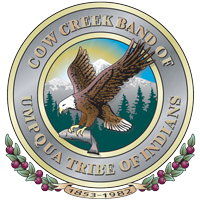Beware of Hidden Dangers in Receding Flood Water
Extreme flooding in Douglas County and elsewhere in the Cow Creek Umpqua Tribal Service area on Sunday and Monday has left behind not just a mess, but some hidden dangers. As the flood waters recede, please remember there are still risks:
(The following information is compiled with guidance from the Centers for Disease Control)
Protect yourself from illness and injuries
Prevent injuries. Floodwater may contain sharp objects, such as glass or metal fragments, that can cause injury and lead to infection. Prompt first aid can help heal small wounds and prevent infection.
- If you receive a puncture wound or a wound contaminated with feces, soil, or saliva, have a health care professional determine whether a tetanus booster is necessary based on individual records.
Prevent infection of open wounds and rashes.
Open wounds and rashes exposed to floodwater can become infected. Vibrios, for example, are naturally occurring bacteria that live in certain coastal waters and can cause skin infections when an open wound is exposed to them. This can happen during floods. To protect yourself and your family:
- Avoid exposure to floodwater if you have an open wound.
- Cover clean, open wounds with a waterproof bandage to reduce chance of infection.
- Keep open wounds as clean as possible by washing well with soap and clean water.
- If a wound develops redness, swelling, or oozing, seek immediate medical attention.
- Seek medical attention as soon as possible if:
- There is a foreign object (soil, wood, metal, or other objects) embedded in the wound;
- The wound is at special risk of infection (such as a dog bite or a puncture by a dirty object);
- An old wound shows signs of becoming infected (increased pain and soreness, swelling, redness, draining, or you develop a fever).
Protect yourself and your loved ones from diarrheal diseases.
Be aware that floodwater may contain sewage, and eating or drinking anything contaminated by floodwater can cause diarrheal disease (such as E. coli or Salmonella infection). To protect yourself and your family:
- Wash your hands after contact with floodwater. Also be sure to wash children’s hands with soap and water often and always before meals.
- Do not allow children to play in floodwater areas.
- Do not allow children to play with toys that have been contaminated by floodwater and have not been disinfected.
- Do not bathe in water that may be contaminated with sewage or toxic chemicals. This includes rivers, streams, or lakes that are contaminated by floodwater.
Avoid electrical hazards inside or outside your home.
After a hurricane, flood or other natural disaster you need to be careful to avoid electrical hazards both in your home and elsewhere.
- Shut off electrical power and natural gas or propane tanks in your home to avoid fire, electrocution, or explosions.
- NEVER touch a fallen power line. Call the power company to report fallen power lines. Avoid contact with overhead power lines during cleanup and other activities.
- Do not drive through standing water if downed power lines are in the water.
- If you believe someone has been electrocuted, call or have someone else call 911 or emergency medical help.





